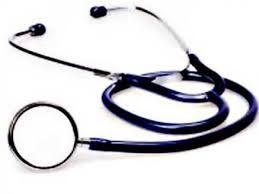
 At some point when obesity cannot be treated with diets and workout sessions, there arises the need of getting the body weight reduced through a surgical treatment, and this is called as undergoing a vertical sleeve gastrectomy. What happens in this treatment is removing your stomach to a greater extent just by inserting tiny tools through various incisions in the upper abdomen. They say about 80% of the stomach can be expected to be reduced through this method successfully. This article will provide an initial guide to sleeve gastrectomy surgery, about the basics that you should know before saying yes to such a treatment. The reason why these treatments are done As mentioned above, this is to help you reduce excess weight. Excess weight can be a cause to life threatening health problems in the future like heart diseases, high cholesterol, strokes, infertility, high blood pressure and even diabetes. This treatment is not obviously the first try you do to reduce weight and only done after trying all possible methods of improving diet and exercise schedules. This treatments are only looked upon for if any of the options do not work for you and if you continuously reach extreme obesity with your BMIs.
At some point when obesity cannot be treated with diets and workout sessions, there arises the need of getting the body weight reduced through a surgical treatment, and this is called as undergoing a vertical sleeve gastrectomy. What happens in this treatment is removing your stomach to a greater extent just by inserting tiny tools through various incisions in the upper abdomen. They say about 80% of the stomach can be expected to be reduced through this method successfully. This article will provide an initial guide to sleeve gastrectomy surgery, about the basics that you should know before saying yes to such a treatment. The reason why these treatments are done As mentioned above, this is to help you reduce excess weight. Excess weight can be a cause to life threatening health problems in the future like heart diseases, high cholesterol, strokes, infertility, high blood pressure and even diabetes. This treatment is not obviously the first try you do to reduce weight and only done after trying all possible methods of improving diet and exercise schedules. This treatments are only looked upon for if any of the options do not work for you and if you continuously reach extreme obesity with your BMIs.
Are there any potential health risks because of this surgery?
Yes, there can be. As this is taken as a surgery, there are some potential health risks involved with it. Some of them are short term risks. Infections Too much bleeding Blood clots Problems associated with respiration But, some risks can affect for a life time, and they will have to be treated separately again. These are considered as long term, major impact risks. Malnutrition (because after getting the stomach reduced, the capacities and everything get adjusted to smaller quantities) Hernias Low blood sugar Vomiting Sometimes, although it happens very rarely, there can also be fatal conditions and this state definitely has influences of other diseases prevailing in the body.
Are there any preparations you should adopt before getting this surgery?
Yes, there are. All the time these surgeries are done under the supervision of a doctor and there will be some things to follow (as advised by the doctor) in getting prepared. Your doctor should be well informed of the medicines, vitamins, supplements that you take in addition to what he has prescribed for you. This will help you largely in avoiding the possible side effects. In case you use tobacco, you will be advised to stop them at least before 12 weeks prior the surgery, and this will be tested right before you undergo it too.
